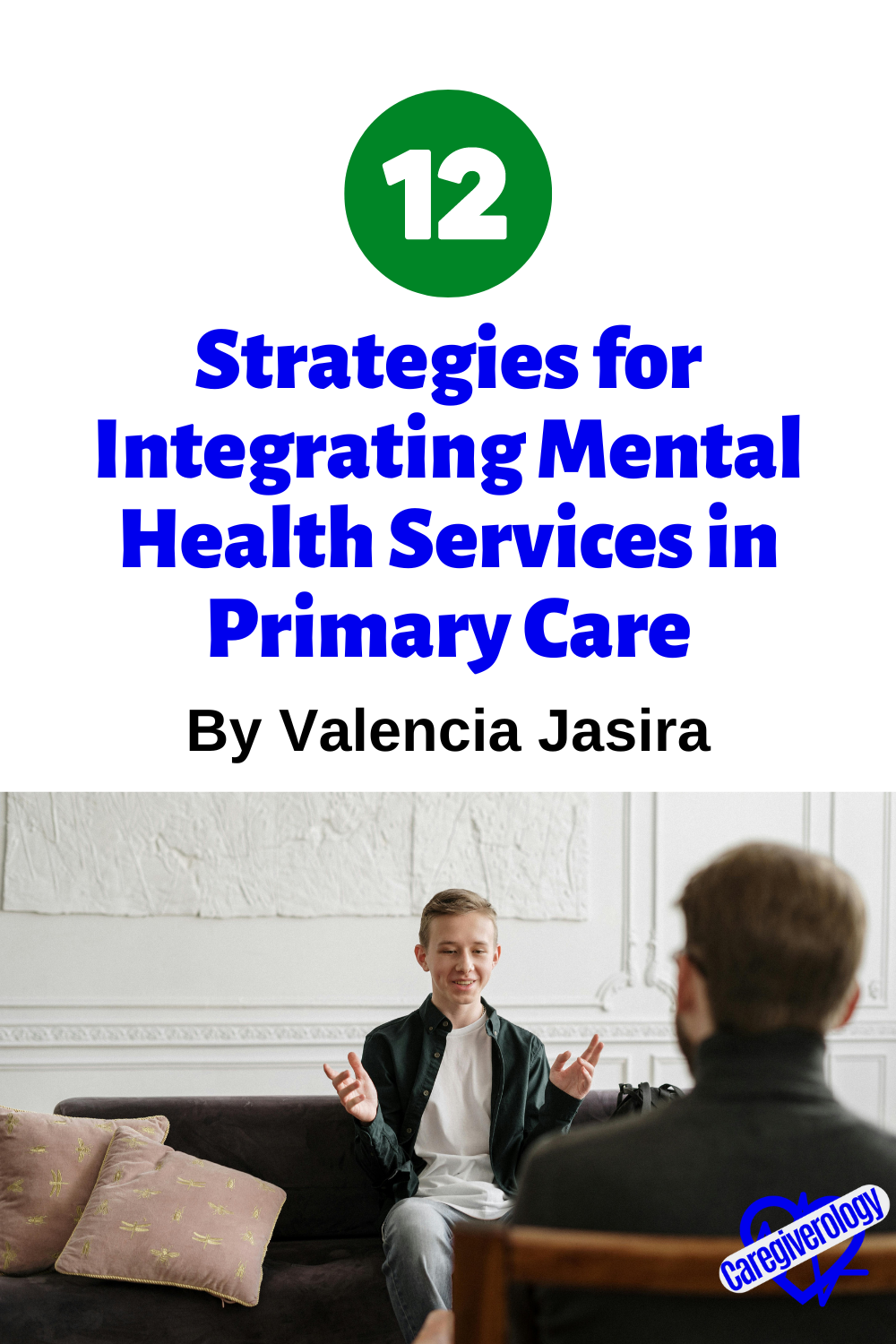12 Strategies for Integrating Mental Health Services in Primary Care

In an era where mental health is increasingly recognized as a critical component of overall well-being, integrating mental health services into primary care has become an essential strategy. This integration facilitates a more holistic approach to patient care and also dismantles barriers to accessing mental health services. As primary care services are the first point of contact for individuals seeking health services, it presents a unique opportunity to address mental health concerns early and effectively. Through this article, we'll explore essential strategies for seamlessly incorporating mental health services into primary care settings, ensuring that patients receive comprehensive care tailored to their full spectrum of health needs.
1 2 3 4 5 6 7 8 9 10 11 12 Conclusion
1. Introduction to Integrated Care
Integrated care represents a paradigm shift in healthcare delivery, emphasizing the convergence of mental health and physical health services. This approach acknowledges the intricate relationship between the mind and body, aiming to provide a more coordinated and efficient care experience for patients. By adopting integrated care models, primary care providers can play a crucial role in identifying, treating, and managing mental health issues alongside physical ailments.
2. Train Primary Care Providers in Mental Health
A foundational step in integrating mental health services into primary care is the training and education of primary care providers. Equipping these professionals with the knowledge and skills to recognize signs of mental health conditions, conduct basic assessments, and provide initial counseling can significantly improve the early detection and treatment of mental health issues. Ongoing training ensures that providers stay updated on best practices and emerging trends in mental health care.
3. Leverage Technology
In today's digital age, technology plays a pivotal role in enhancing healthcare delivery. Telehealth and digital health platforms offer a viable solution for integrating mental health services into primary care. Providers pursuing a Bachelors degree in Psychology online are particularly well-positioned to leverage these technologies. They can offer remote counseling, support, and monitoring, making mental health care more accessible and convenient for patients.
4. Implement Collaborative Care Models
Collaborative care models involve a multidisciplinary team approach to patient care, where primary care providers, mental health specialists, and other healthcare professionals work together to develop and implement treatment plans. This model fosters effective communication and coordination among team members, ensuring that patients receive comprehensive care that addresses both their physical and mental health needs.
5. Screen for Mental Health Conditions Routinely
Routine screening for mental health conditions in primary care settings is crucial for early detection and intervention. Implementing standardized screening tools for common mental health issues such as depression, anxiety, and substance abuse during regular check-ups can help identify patients in need of further evaluation and treatment, facilitating timely care.
6. Create a Welcoming Environment
The physical and emotional environment of a primary care facility can significantly impact a patient's willingness to discuss mental health concerns. Creating a welcoming and non-judgmental environment encourages open communication between patients and providers. This can be achieved through staff training in empathetic communication, ensuring privacy during consultations, and displaying informational materials about mental health in waiting and consultation rooms.
7. Establish Clear Referral Pathways
For primary care providers, having clear and efficient referral pathways to mental health specialists is key to effective integration. These pathways ensure that patients requiring specialized mental health services can be quickly and seamlessly referred, reducing wait times and improving continuity of care. Establishing strong partnerships with local mental health practitioners, clinics, and support services enhances the referral process and supports a comprehensive care network for patients.
8. Promote Patient Education and Self-Care
Educating patients about mental health is a vital component of integrated care. By providing resources and information, primary care settings can empower patients to understand their mental health conditions and the importance of self-care practices. This education can include stress management techniques, the benefits of regular physical activity, and mindfulness practices. Empowering patients with knowledge about their mental health fosters a sense of ownership over their well-being and encourages active participation in their treatment plans.
9. Utilize Interprofessional Education
Interprofessional education brings together primary care providers and mental health professionals in a learning environment to understand each other's roles better. This strategy fosters mutual respect and collaboration, which are essential for integrated care. By learning together, healthcare providers can develop a unified approach to patient care, ensuring that mental health is considered alongside physical health in all treatment plans.
10. Incorporate Mental Health in Chronic Disease Management
Chronic physical health conditions often have a significant impact on mental health, and vice versa. Integrating mental health services into the management of chronic diseases such as diabetes, heart disease, and chronic pain can improve patient outcomes. This approach includes assessing mental health as part of routine care for chronic conditions and tailoring interventions to address both physical and mental health needs concurrently.
11. Leverage Community Resources
Strong connections with community resources can enhance the delivery of integrated mental health services in primary care. Linking patients with community-based mental health resources, support groups, and educational workshops can provide additional layers of support. These resources extend the continuum of care beyond the primary care setting, offering patients access to a wider range of services and support networks.
12. Implement Measurement-Based Care
Measurement-based care involves the regular assessment of patient outcomes using standardized tools to guide treatment decisions. This evidence-based approach ensures that mental health interventions are effective and adjusted based on the patient's progress. Incorporating measurement-based care into primary care settings allows for more personalized and responsive mental health treatment plans.
Conclusion
Integrating mental health services into primary care represents a significant step forward in creating a more holistic and patient-centered healthcare system. The strategies outlined in this article, from promoting patient education to leveraging community resources, highlight the multifaceted approach needed to achieve successful integration. By adopting these strategies, primary care settings can provide comprehensive care that addresses both the physical and mental health needs of their patients.
This integrated approach improves access to mental health services and also enhances the quality of care, patient satisfaction, and health outcomes. As we move forward, it's clear that the future of healthcare lies in breaking down the barriers between mental and physical health services, fostering a unified approach to health that recognizes the indivisible nature of mental and physical well-being. Through collaboration, innovation, and a commitment to continuous improvement, we can ensure that all patients receive the compassionate, comprehensive care they deserve.
Thank you Valencia Jasira for contributing this article.
Mental Health and Support Articles
From 12 Strategies for Integrating Mental Health Services in Primary Care to Home
Recent Articles
-
Common Truck Crash Injuries and Legal Remedies - Caregiverology
Jul 19, 25 10:49 AM
Known for its sun-drenched beaches, vibrant arts scene, and bustling maritime industry, Fort Lauderdale is a city that sees heavy traffic both on its roads and at its busy port. Unfortunately, with th… -
Why Expert Legal Help Matters After Serious Injury - Caregiverology
Jul 19, 25 10:35 AM
In Houston, over 67,600 car crashes occurred in 2023, resulting in 290 fatalities and 1,612 serious injuries. That’s roughly 185 accidents every day. -
How Life Care Planners Support Injury Recovery - Caregiverology
Jul 19, 25 10:18 AM
In Los Angeles, life care planners play a vital role in supporting injury recovery, especially for individuals facing catastrophic injuries such as traumatic brain injuries or spinal cord damage.





New! Comments
Have something to say about what you just read? Leave a comment in the box below.